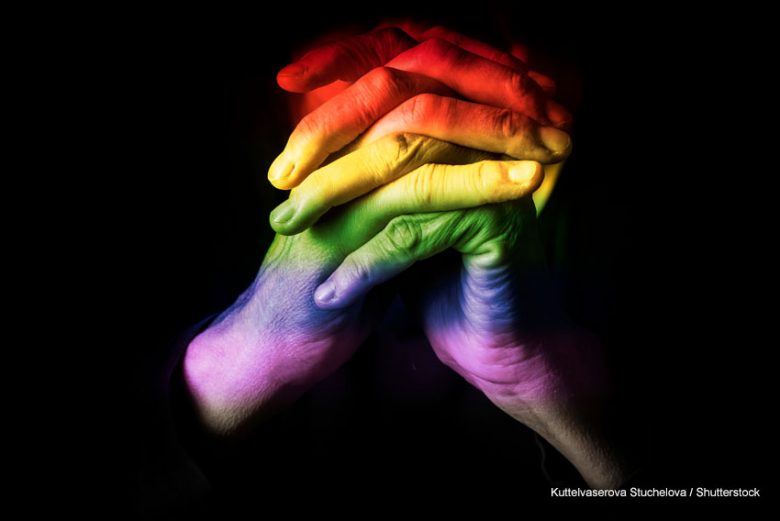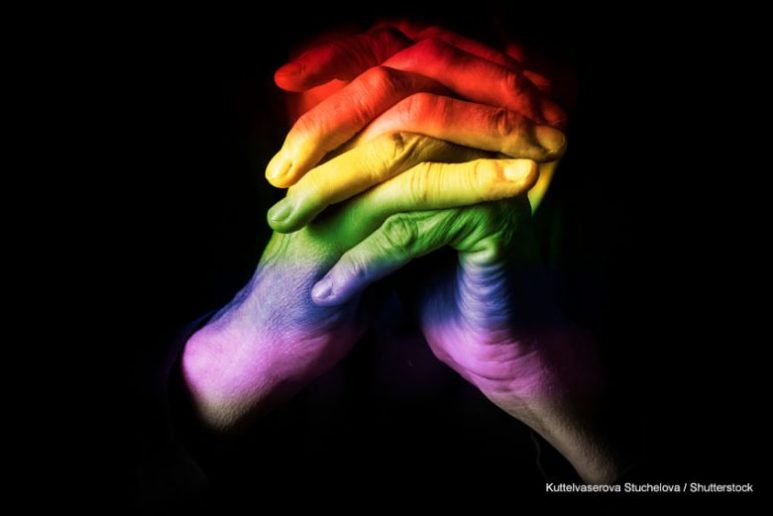By Abdullahi Jimoh
Studies have revealed that the media’s representation of groups, including the LGBTQ+ community, can influence support for equal rights. But in some countries in Africa, the media is being impacted by new laws that punish the “promotion” of homosexuality. How can Africa’s media report on the community and what impact can they have?
In May, 2020, the world’s largest media advocacy group, Gay & Lesbian Alliance Against Defamation (GLAAD), conducted a survey in partnership with the world’s largest advertiser, Procter & Gamble. It revealed s how the media’s representation of queer people on TV and in advertisements influenced non-LGBTQ Americans to support equal rights for LGBTQ+ individuals. According to the survey, 80 percent of respondents who had been exposed to LGBTQ people in the media say they are in support of equal rights for them, compared to 70 percent who are in support of their rights but have not been exposed to them in the media.

This is not the case in some African countries where rights and liberties have been under pressure in recent years. Almost half of the countries with laws criminalising homosexuality are in Africa and some nations, including Nigeria and Uganda, have tightened their laws.
On 29 May 2023 Ugandan President, Yoweri Museveni signed a new anti-LGBTQ bill into law that toughened punishment. The new law provides the death penalty for certain same-sex acts and long prison sentences for “promoting” homosexuality. The media now face possible incarceration a fine and revocation of license if seen to promote LGBTQ+ activities. The ninth item in the Act reads: “Media houses that publish materials that promote homosexuality – fine 1 billion Ugandan Shillings (£ 216,414.78) and license revoked for 10 years”. Journalists now face the fear of severe consequences if they carry out their duties and report on or uplift minority interests. In 2022, a research study on press freedom quoted scholars saying that in a democratic country the press should not be constrained. But in Uganda, the press will now likely censor and adjust the content of productions and publications to avoid breaking the law.T Most journalists and Right activists in the country are also at risk of intimidation.
Research published in 2019 revealed that television and radio have no direct effect on pro-gay attitudes in Africa. However, those who consume more newspapers, internet or social media are significantly more likely to support LGBTQs by between 2 to 4 percent.
Despite those attitudes, many still face backlash for their views. In March 2023 Sarah Kasande, an Advocate of courts of Judicature in Uganda, posted a screenshot on Twitter of an open letter written by the mothers of LGBTQ citizens to the President Museveni. The mothers recounted their experiences as parents of minority individuals in the hands of majority. What Twitter users tweeted in response to her screenshot are not palatable.
Journalists should be careful of what they write – Pelumi Salako
Pelumi Salako, a Nigerian International freelance reporter who publishes in Openly news , an initiative of Thomson Reuters Foundation, has written about the LGBTQ+ community in Nigeria. Salako said the local media’s approach to the representation of queer individuals is not helping the matter. “I think most of the reports you find in the local media cover it from the point of view of ‘criminality’ and not necessarily look into the nuance of queer life, or talk about the struggles (and joy) of living in this country as a LGBT person,” he told MDI.
Nigeria has a strict law against homosexuality that was introduced in 2014 by President Goodluck Jonathan. The Same-Sex Marriage (Prohibition) Bill criminalizes public displays of affection between same-sex couples and restricts the work of organizations defending gay people and their rights. . The law makes it difficult to cover LGBTQ+ issues, which are underreported in the country. i. In May 24, The Punch, a daily newspaper in Nigeria, posted the story of a Nigerian who married his lover in France on its Facebook page. Its followers reacted angrily and it did not publish the news on its website.
Salako advises journalists based in countries like Uganda, where the media is not allowed to promote LGBTQ+ rights,. to be careful about what they write.
Meanwhile, harsh laws on LGBTQ+ in Kenya, Tanzania, Zambia, Somalia, Mauritania and many other Global South countries are hindering balanced representation of queer rights and also shifting people’s attitude against media platforms that strive to cover them.

